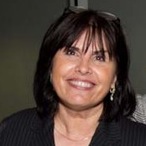Marin to Speak at Columbia University
by Arts and Letters | Wednesday, May 16, 2018
Dr. Noemi Marin will speak at Columbia University on April 25th about her work involving the history of political discourse. This talk, entitled "Why 1989 Still Matters: Post-Communist Rhetoric, Romanian Discourse and European Identity as Public Arguments of Democracy," will take place a week before Dr. Marin's participation in Columbia University's Nationalities Convention, for which she is the representative of rhetorical perspectives. In her talk, she will discuss her work including her most recent co-edited collection with Cezar Ornatowski, entitled Rhetorics of 1989: Rhetorical Archaeologies of Political Transitions(Routledge, 2015). A related talk was delivered by Dr. Marin at Harvard University, Davis Center in spring 2014. Dr. Marin is currently working toward a larger publication on the taxonomy of communist rhetoric. Her work sheds light on the lack of East and Central European studies in communication scholarship in the United States, particularly from the perspective of rhetoric.
Dr. Marin emphasizes the importance of scholars who "have lived in two worlds," and who can provide varied perspectives based on their countries of origin. This is especially important, she emphasizes, after 9/11. Her recent publication with Cesar Ornatowski, Rhetorics of 1989, is third in a collection (2011, 2014, 2015) on the history of political discourse in which, Dr. Marin emphasizes, "we tried to internationalize the rhetorical studies on the area." She hopes that this interdisciplinary and international project will continue to provide more "synthetic views" of such an important era, particularly with regard to the nuances of rhetorical discourse in the public sphere. Based on high reviews, she hopes that this collection adds to the scholarly discussion of the widespread social change of 1989 and the "conditions of discourse" associated with such change.
Dr. Marin's presentation at Columbia University focuses specifically on her work on rhetorical space and nationalism. She questions how some spaces provide more rhetorical freedoms, while other spaces are closed off, particularly due to the restriction of language. She asks why such openings and restrictions were possible "from a persuasive standpoint," and how "vocabularies of power" manifest in societies. She hopes that her work contributes to opening rhetorical studies to a more global academic community, and she looks forward to her presentations and Columbia University as further steps toward that goal. She's hopeful for the future of international rhetorical studies, and certainly "happy to be in the global conversation" in the meantime.